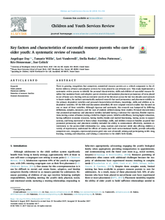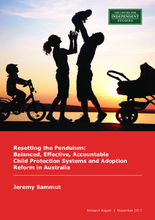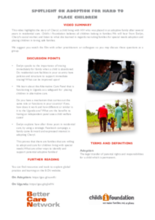Displaying 331 - 340 of 660
The current study explores (a) a moderation model of adoption status on the association between attachment representations (secure, dismissing, preoccupied, and disorganized) and behavioural problems and (b) a moderation model of adoption status on the association between emotion regulation processes (cognitive reappraisal and expressive suppression) and behavioural problems.
In this study, 30 primary school aged UK adoptees without a history of institutionalisation completed an assessment of their intellectual, executive functioning and social communication abilities.
This study implemented a systematic review process to identify the personal characteristics, skills and abilities of successful resource families that maximize foster and adoptive parent retention and maximize placement permanency of teens placed in out of home care.
This webinar, from the U.S. National Child Traumatic Stress Network, as part of its Childhood Traumatic Grief e-learning series, describes the impact of traumatic separation, attachment, and attachment disruption on children and adolescents.
This research report reviews the child protection and adoption policies in Australia and the long-term plan of the New South Wales (NSW) government "to restructure the operation of the child protection system to increase sustainability and improve performance by achieving permanency for more children."
This report provides preliminary estimates of Adoption and Foster Care Analysis and Reporting System (AFCARS) data for FY 2016 in the United States.
In this video, social worker Evelyn Nateza describes the process used by Child's i Foundation to find Ugandan adoptive families for hard-to-place children.
This article examines whether and how felt caregiver burden influences the reported propensity of caregivers to want to adopt the children in their care.
This video series from Better Care Network, in partnership with Child's i Foundation, highlights promising practices in children's care in Uganda.
The goal of this presentation is to describe a unique manualized Adoption-Specific Intervention (ADAPT) intervention, developed specifically for families adopting older foster care youth. Important lessons for mental health clinicians working with families of adopted youth will be discussed.




